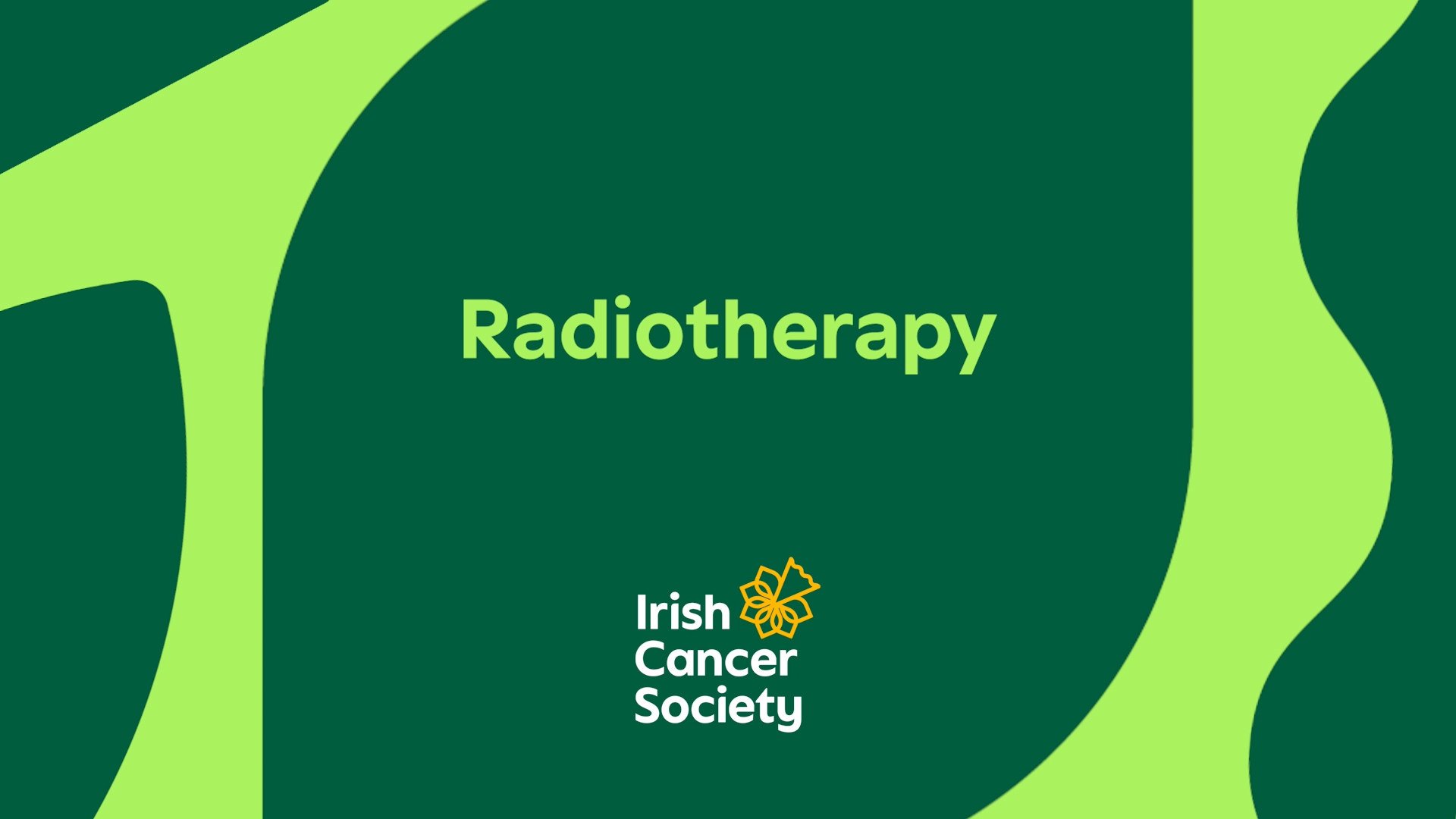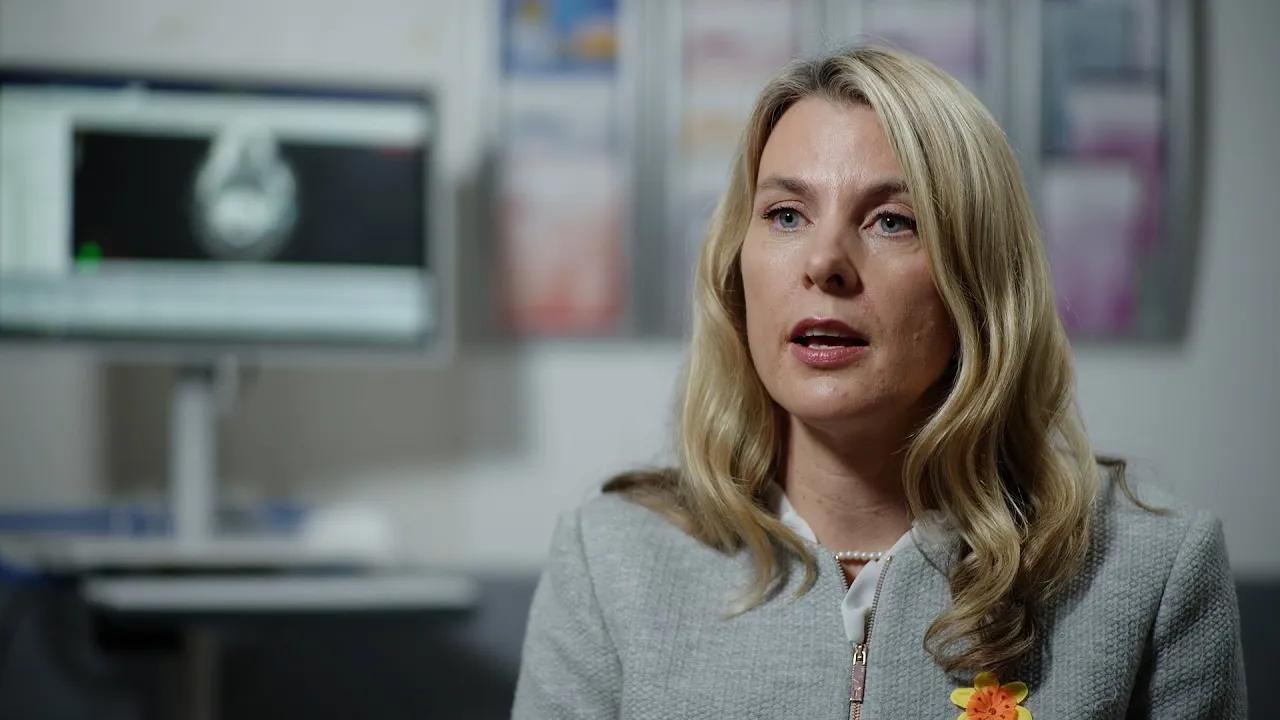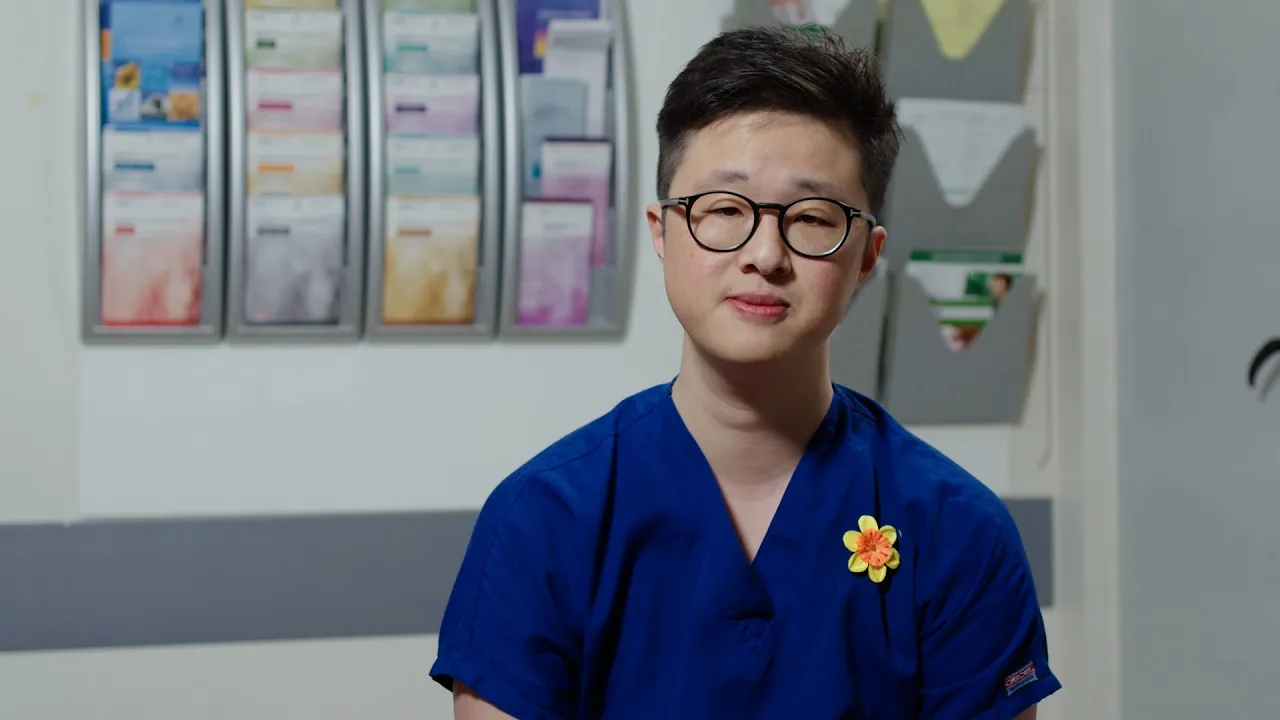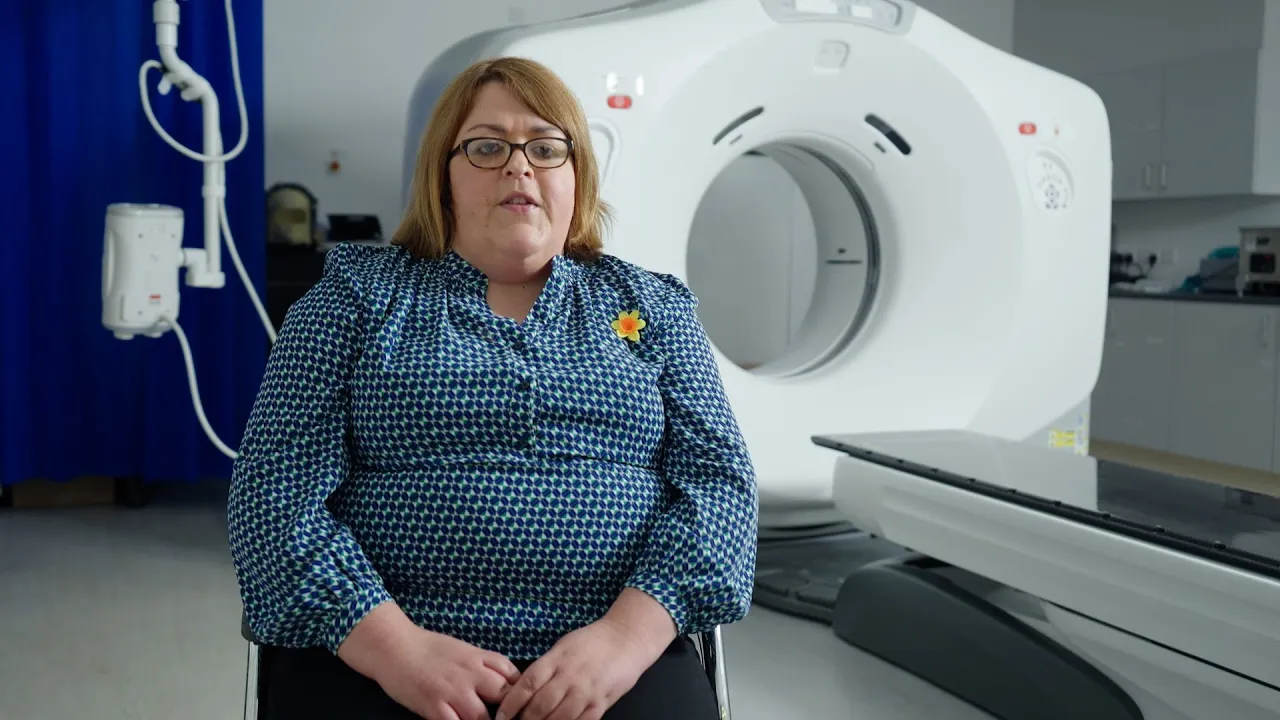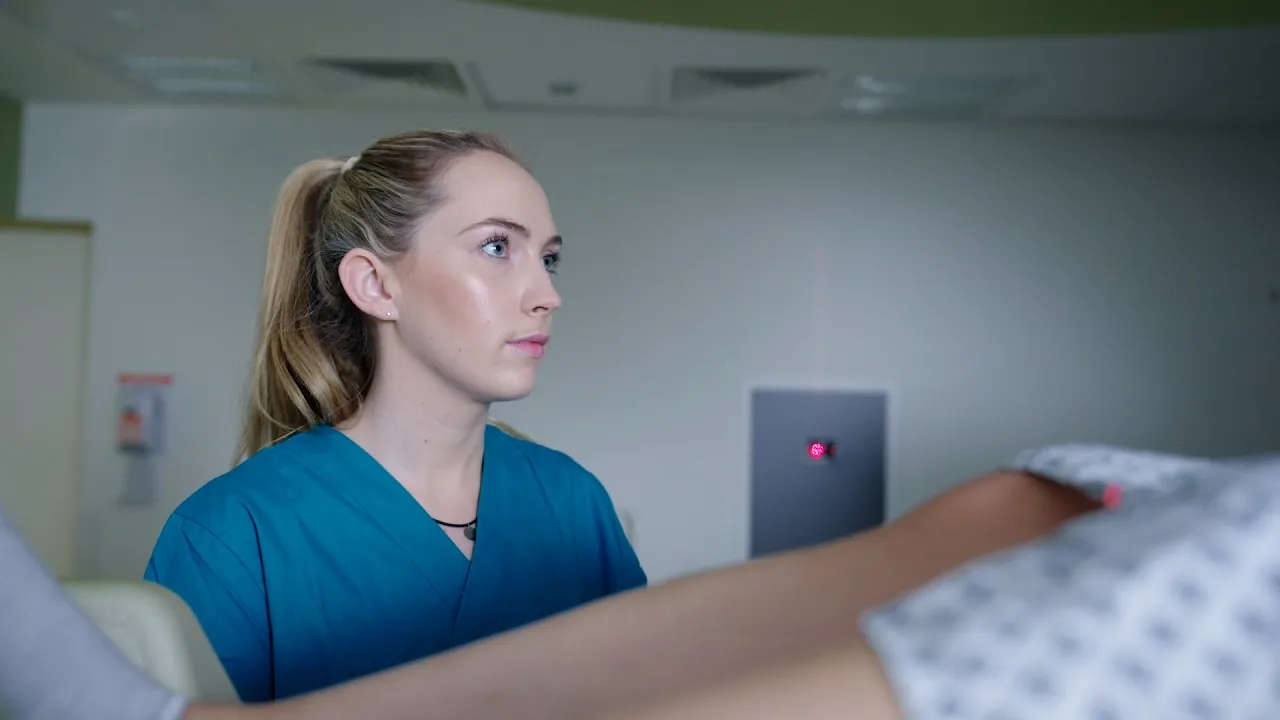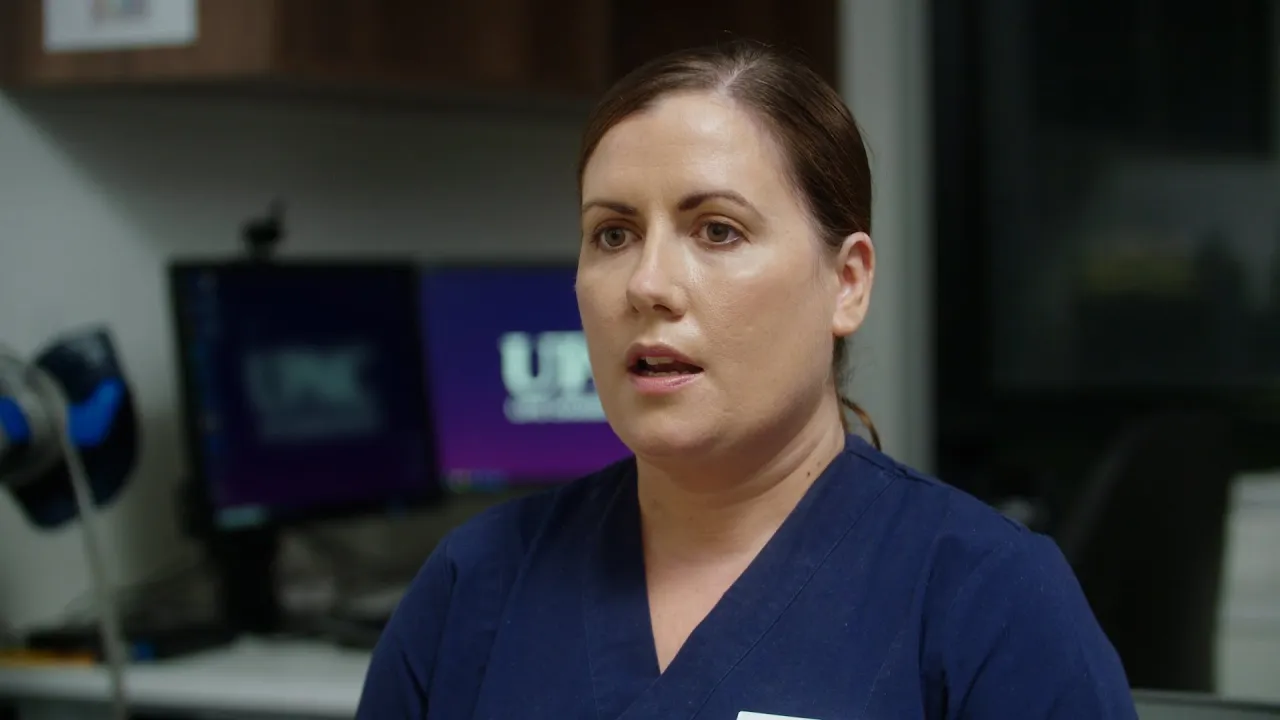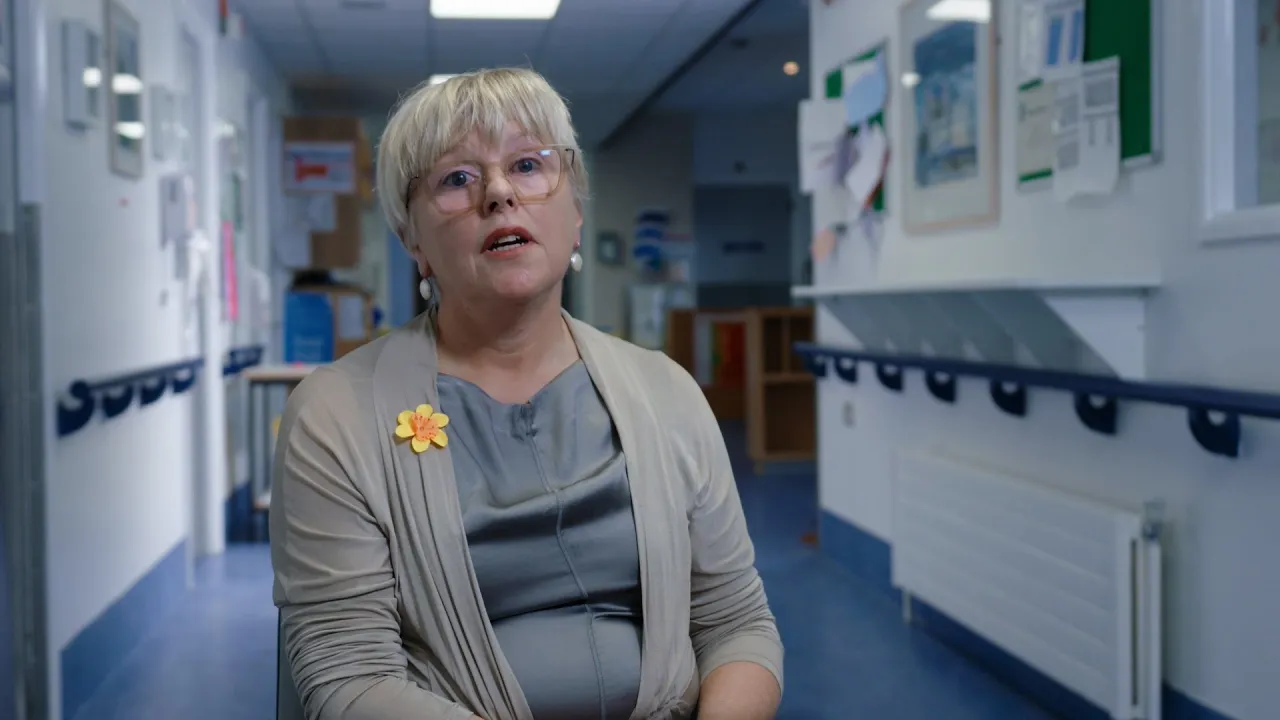Radiotherapy 6: Side-effects
This video outlines what potential side-effects to expect during and after treatment as well as explains the importance of reporting side-effects.
0:04
Radiotherapy can temporarily damage or destroy healthy cells, leading to short-term and long-term side-effects. Any side-effects you get will depend on which part of your body is being treated and the number of treatments you get.
0:17
Long-term side-effects may develop months after radiotherapy is finished. You may be fatigued, which means extremely tired. Feeling very tired or fatigued is quite common during radiotherapy, especially towards the end of treatment.
0:32
There may be many reasons for this. First, the body uses a lot of energy for healing during radiotherapy, also travelling to and from the hospital each day for weeks on end can make you more tired than usual.
0:45
You may feel tired for some weeks or even months after treatment finishes, but usually in time the feeling lifts, and there are things you can do to cope better with fatigue in the meantime.
0:56
Your skin within the treatment area may be affected. This means that your skin may become red, sore or itchy, or it may peel and flake. Skin reactions can happen during or after your treatment.
1:09
During your treatment, your radiation therapist and/or your nurse will check for any skin reactions, which you should also let them know straight away if you feel any soreness or have any other changes.
1:21
Your doctor may prescribe a cream or lotion for you to use, and it's best to use only products your doctors and nurses recommend, as other products may irritate your skin.
1:32
Skin reactions usually settle a few weeks after treatment has finished. After the redness has faded, your skin may peel, but it should heal quickly. The skin may also remain a little darker than the surrounding skin.
1:45
Each body area that is treated may have side-effects, and here are some of the most common areas. If you are receiving radiotherapy to your head or neck, you may experience mouth problems such as sore mouth or gums, dental problems, dry mouth, and mouth stiffness. Difficulty swallowing, and this affects your ability to eat and drink. Weight loss, skin reactions, hair loss in the treated area.
2:14
If you are receiving radiotherapy to your breast or chest area, you may experience skin changes, which may include redness and peeling, flaking of the skin, hyperpigmentation, which means that the skin colour in the treated area becomes deeply tanned. You may experience pain such as in the chest wall, the rib cage area. Lymphoedema, this is a swelling caused by a build-up of lymph fluid in your tissues, affecting, for example, the tissues of your arm. Coughing, shortness of breath or difficulty swallowing.
2:50
If you are receiving radiotherapy to your abdomen, tummy or pelvis, you may experience the following, diarrhoea or constipation, irritation to the back passage, loss of appetite and/or weight problems, bladder problems. For both men and women, radiotherapy to your pelvic area can cause sexual problems, such as less desire for sex and some physical problems too. For men, it can cause difficulty getting or keeping an erection, which is also called erectile dysfunction. For women, you may have bleeding, menopausal symptoms, shortening or narrowing of the vagina and possibly fertility issues.
3:29
Although we have outlined all of the side-effects that may occur, it is important to say that you may not get any of these side-effects and again, your team will discuss what is relevant to you in more detail.
3:41
Some of you may have questions around fertility. If this is on your mind, it is important to discuss sperm banking and egg preservation with your nurse specialist before you start your treatment. The nurse specialist will be happy to discuss this with you and refer you to the appropriate clinics for fertility preservation, if they this is an option for you.
4:04
All cancer services have a dedicated acute oncology nurse or a day ward contact who is available on the phone if you have any concerns or questions. You will be given these contact numbers as well as an out-of-hours hospital or ward contact number.
4:19
If you happen to need to go to the emergency department or attend another clinic, please carry your cancer treatment alert card. Carry this card with you at all times. If you are unwell, show it to the receptionist at your GP or emergency department, and to any healthcare professional you meet, including ambulance staff.
4:38
This card will make sure you are seen immediately if needed.
